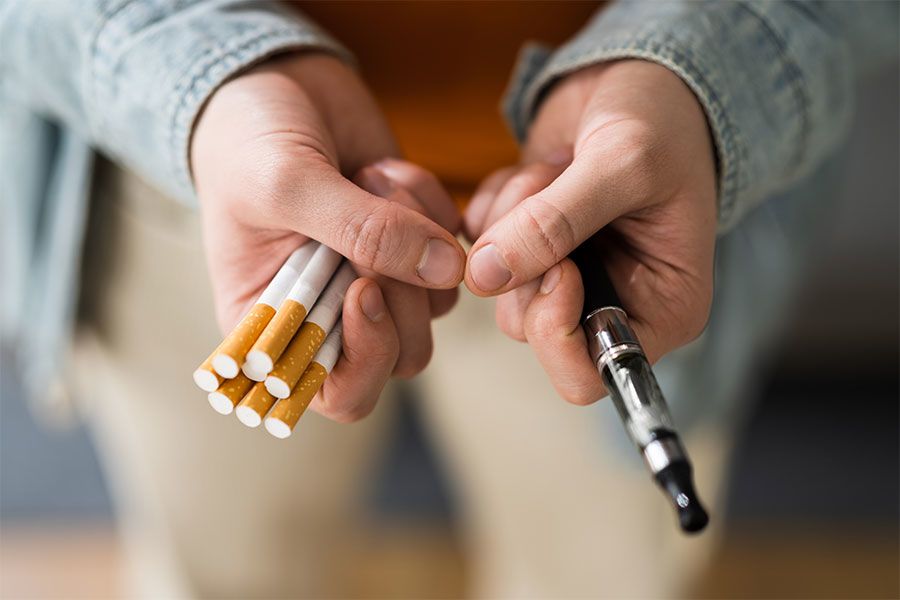Smoking and Vaping Spike Prediabetes Risk in Latinos

Vaping and Smoking Raise Diabetes Risk — New Research Offers an Urgent Warning for Latino Communities
For years, we’ve heard about the dangers of smoking. But many people—especially younger adults and parents—still believe that vaping is safe. Some even think it’s a harmless option for teens.
But new scientific evidence shows that neither smoking nor vaping is safe, and both may significantly increase the risk of prediabetes and type 2 diabetes—conditions that already affect Latino communities at high rates.
A major study from the University of Georgia, analyzing over 1.2 million health surveys, found that people who smoke or vape have a much greater likelihood of developing blood sugar problems that can lead to diabetes.
For Latinos, who already face higher risks for diabetes due to social, economic, and healthcare barriers, these findings are especially important.
The study found the following increases in prediabetes risk:
- 7% higher risk for vapers
- 15% higher risk for smokers
- 28% higher risk for people who both vape and smoke
For type 2 diabetes, a lifelong condition:
- 7% higher risk for vapers
- 9% higher risk for smokers
The CDC reports that Latinos are 70% more likely to be diagnosed with diabetes than white Americans — and are often diagnosed at younger ages.
Adding smoking or vaping on top of this existing risk makes the health burden even heavier.
Research consistently shows that Latinos:
- Have higher rates of prediabetes
- Are more likely to live in communities with less access to affordable healthcare
- Often work in stressful or physically demanding jobs
- Face cultural marketing from tobacco and vape companies
In this new study, Latino participants who smoked or vaped had higher rates of prediabetes, especially when combined with low-income conditions or obesity—two challenges disproportionately affecting many Latino families.
Prediabetes is not “mild diabetes.”
It’s the warning stage where the body develops insulin resistance and blood sugar levels rise above normal.
The good news?
At this stage, prediabetes is reversible with lifestyle changes.
Health experts say quitting smoking or vaping may now be one of those key changes.
Dr. Ann Peters, a diabetes specialist, explains:
“Nicotine disrupts the way the body processes sugar, making insulin work less effectively.”
This effect has been seen in both cigarette smoke and vape products.
The study found that smokers who exercised regularly had an 8% lower risk of developing prediabetes.
Physical activity is helpful—but researchers stress it does not erase the harmful effects of smoking or vaping.
In other words:
You can’t out-exercise the damage nicotine does to your metabolism.
Why Nicotine and Vape Chemicals Harm Blood Sugar
Previous studies show:
- Nicotine increases cortisol, a hormone that blocks insulin
- It causes blood sugar to spike
- It leads to long-term insulin resistance
- Vape products—even nicotine-free ones—contain chemicals that irritate the lungs and may affect metabolism
The University of Georgia researchers believe that ingredients in vape liquids may also play a role in altering glucose control.
To protect your health and your family’s health:
- Avoid smoking and vaping — even “light” or “nicotine-free” options
- Encourage teens and young adults to avoid vape culture
- Get tested for prediabetes, especially if diabetes runs in the family
- Increase physical activity and choose healthier foods
- Seek community health programs that support quitting nicotine products
Neither smoking nor vaping is harmless — and both increase the risk of developing diabetes.
For Latinos, who already face higher rates of diabetes, this information is critical.
The sooner we take action as a community, the healthier we’ll be for future generations.

